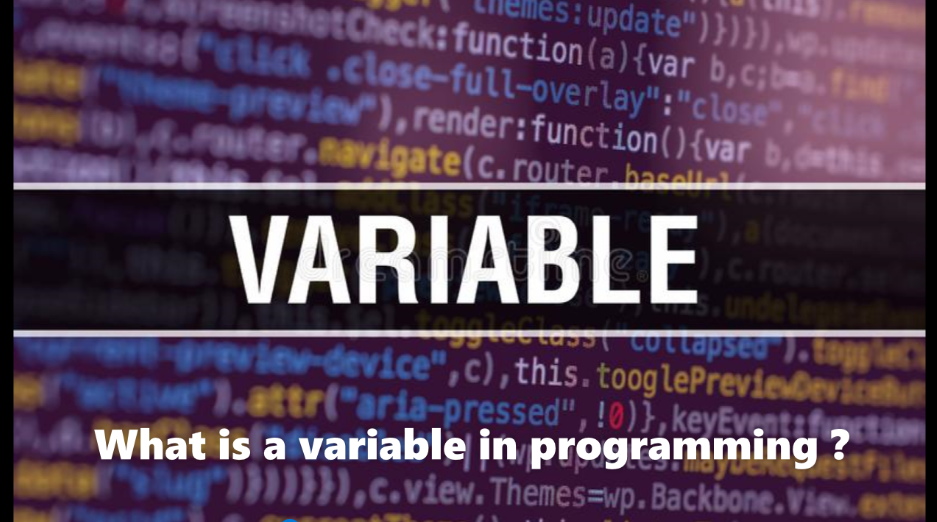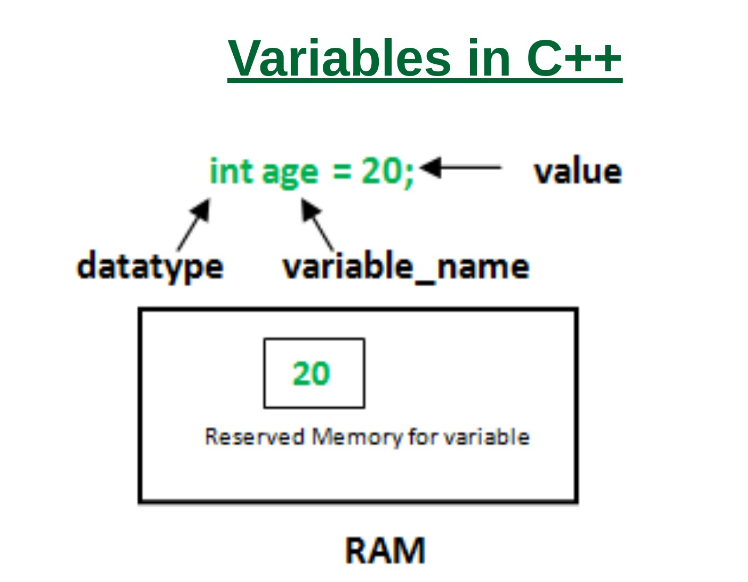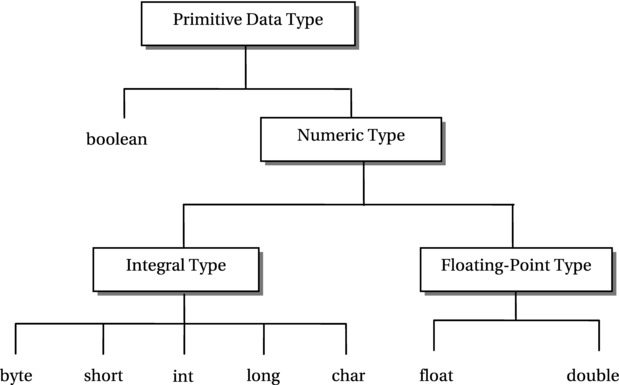Variables are used to store information to be referenced and manipulated in computer programs. which contains some known or unknown quantity of information called value or in simple words, a variable in bits or pieces. They also provide a way to label data with a descriptive name, so that our programs can be more clearly understood by the reader and themselves. It is helpful to think of variables as containers that hold information. Their sole purpose is to label and store data in memory. This data can then be used throughout your program.
What is variable declaration and definition in C ?
In computer science and computer programming, a data type or simply type is a property of data that tells the compiler or interpreter how the programmer wants to use the data. A data type restricts the values that an expression, such as a variable or a function, can take.
Variables in C++ :
A variable is the name given to a memory location. It is the basic unit of storage in a program.
- A value stored in a variable can be changed during the execution of the program.
- A variable is just a name given to a memory location, all operations performed on the variable affect the memory location.
- In C++, all variables must be declared before use.
What is data type in programming ?
To declare (create) a variable, you would specify the type, leave at least one space, then the name for the variable and end the line with a semicolon ( ; ). Java uses the keyword int for integers, double (a double precision number) for floating point numbers, and boolean for boolean values (true or false).
How many types of variables are there ?
You should know that there are five types of variables. constants, global variables, class variables, instance variables and local variables.
Constants are declared by capitalizing each letter in the name of the variable. They are used to store data that never needs to be changed. Whereas most programming languages do not allow you to change the value assigned to a constant. However it will give you a warning letting you know that there was a previous definition for that variable. Just because you can, doesn’t mean you should change the value. In fact, you shouldn’t. Constants cannot be declared in method definitions, and are available within the scope of your application.
There are a total of 5 different variable types in a programming language. They are as follows :
- Continuous Variable
Persistent variables are used to store data that does not need to be changed throughout the program. The data in this type of variable cannot be modified.
- Global Variables
Global variables are declared outside a function and can be accessed by execution from any part of the program. In Ruby, the $ sign is used before the variable name to make it global while in Python, the ‘global’ keyword is used.
- Class variable
These variables are only accessed within the class. Class variables must be declared at the class level. They are also called static variables because there can be only one copy of each class variable per class.
- Instance Variables
Instance variables are declared inside the class, but outside a method.
- Local Variables
They are the most commonly used variables which are declared in methods, class, instances. These variables can be accessed from within a block/part of code.
To get information related to computer, you click here – gif to png , how to make background transparent in paint , how to rotate image in word , smartcast not working


